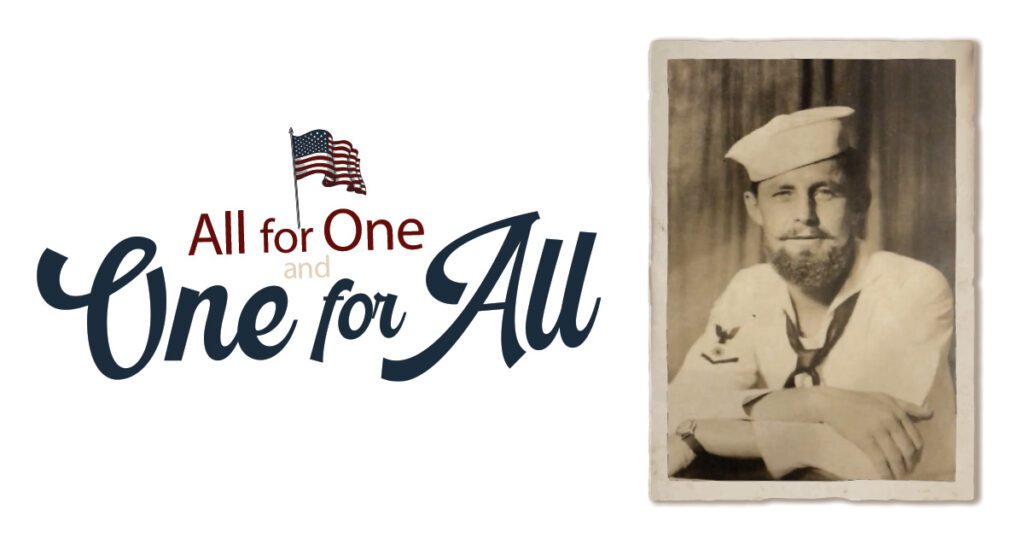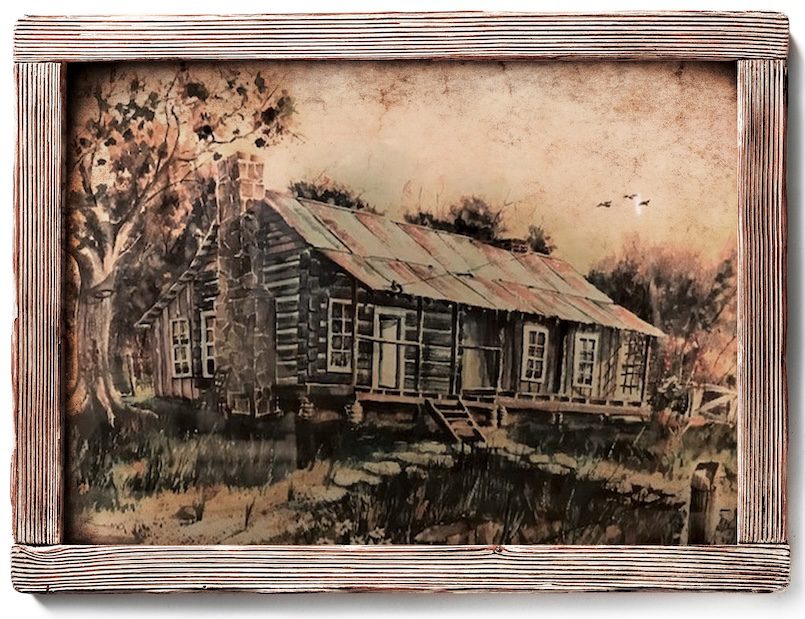30 Jun 2025 All for one and one for all
By Vivian Lawson Hogue
My father’s use of extended conversation was infrequent. It was not because he did not wish to participate, and verifiably not for the lack of word knowledge or opinions. Perhaps it came from the Arkansas hill country trait that one of my brothers called “conversational silence,” whereupon all discourse ceased when a subject was adequately covered.

For a few moments, only the whippoorwills and hoot owls prevailed. It was quiet except for the squeaky, straight-back chairs and granddad’s occasional chewing tobacco deposit into a Sir Walter Raleigh tobacco can. It was as if everyone had left the cabin porch and gone to gather eggs or feed the horses. Nothing was said until the next thought was offered for discussion.
That thought was occasionally about “wars and rumors of war.” The dark subject was discussed many times during my Lawson grandparents’ years of life, which ranged from 1876 to 1972.
The Civil War was a great affliction. It affected families, farms and businesses in the South due to the absence of male family members who were vital to the continuation and upkeep of those livelihoods. Women, children and the elderly were left to “make do,” and sometimes they succumbed to starvation, illness, injury or enemy marauders. Men even died in duels over which side they supported.
My grandmother’s youngest brother, Joe, died Oct. 17, 1918, at Romagne-sous-Montfaucon, Lorraine, France, during World War I. He, like thousands of others, likely felt he was in another dimension, not knowing the people, language and terrain. Not all military deaths were a result of wounds, but of environmental conditions. Joe was listed as “died from disease,” and I have wondered if he was a victim of the 1918 pandemic.
As life would have it, the war ended only 25 days later. He is buried under French soil, a long way from his quiet Arkansas hills where his rifle only aimed at something for supper.
As World War II rolled around in 1941 with the bombing of Pearl Harbor, patriotism and volunteerism was high. This multinational war had larger populations, varied languages and terrains, with leaders bent on defeating America. However, our leaders, war tactics, materiel, faith and resolve were more advanced this time.

The home front planted “victory gardens,” and children at home increased inside and outside chores. Women built airplanes and ships. With gas rationing, the country was walking. Obesity was uncommon, and healthful foods helped sustain. Our Uncle Bill, stationed on a Coast Guard ship, was further endeared to us because he sent us Wrigley’s gum.
Homeowners did their part in the war effort by installing blackout window shades as directed by the office of Civil Defense. Between 1939 and 1945, America and its allies lowered the shades at night to lessen the possibility of being in “plane” sight.
The still-existing Gold Star Family program began in WWI, but gained more recognition during WWII. In their home’s windows, families displayed small banners centered with a blue or gold star for each family member serving in the war. If a family member died while serving, a gold star was placed over the blue one.
A brother recently sent a birthday narrative detailing the day of my mid-war birth in 1943. He recalled that on the day I arrived, and with a type “A” gas rationing card providing 5 gallons a month, he and the oldest brother left Conway on a gravel road to Beebe in our ’39 Buick. They were to pick up an aunt at the train station. She was already there, holding her suitcase containing her usual neonatal equipment. Not only had a child been born, but a girl, of all things.
Dad, at age 42, was actually pre-terminal following an abscessed tooth extraction and osteomyelitis. Mother was understandably worried about her husband and ailing father of her new baby and four sons ages 17, 13, 11 and 3. It was determined that dad needed to be hospitalized for surgery in Little Rock. A young couple next door placed him in the back seat of their two-door 1934 Ford, used their own gas ration, and drove him to Little Rock, 50 minutes away. He survived, dying decades later just short of his 99th birthday.
America has, since 1945, endured the Korean “conflict,” Vietnam, the Gulf War, and Afghanistan, although World Wars I and II were each thought to be the war that would end all wars. Too many had overlooked the Bible scriptures of Matthew 24:6 and Mark 13:7, among others.
One day during WWII, one of dad’s young brothers ambled down the creek bed and through the woods to somewhere. Two years later, he ambled back up the creek bed, saying he had been in the military, but was now home. Just in time for grandmother’s grits and gravy … and conversational silence on the cabin porch.
- They found their ‘true grit’ - January 5, 2026
- And that’s what Christmas is really all about - December 2, 2025
- Giving thanks - November 4, 2025









